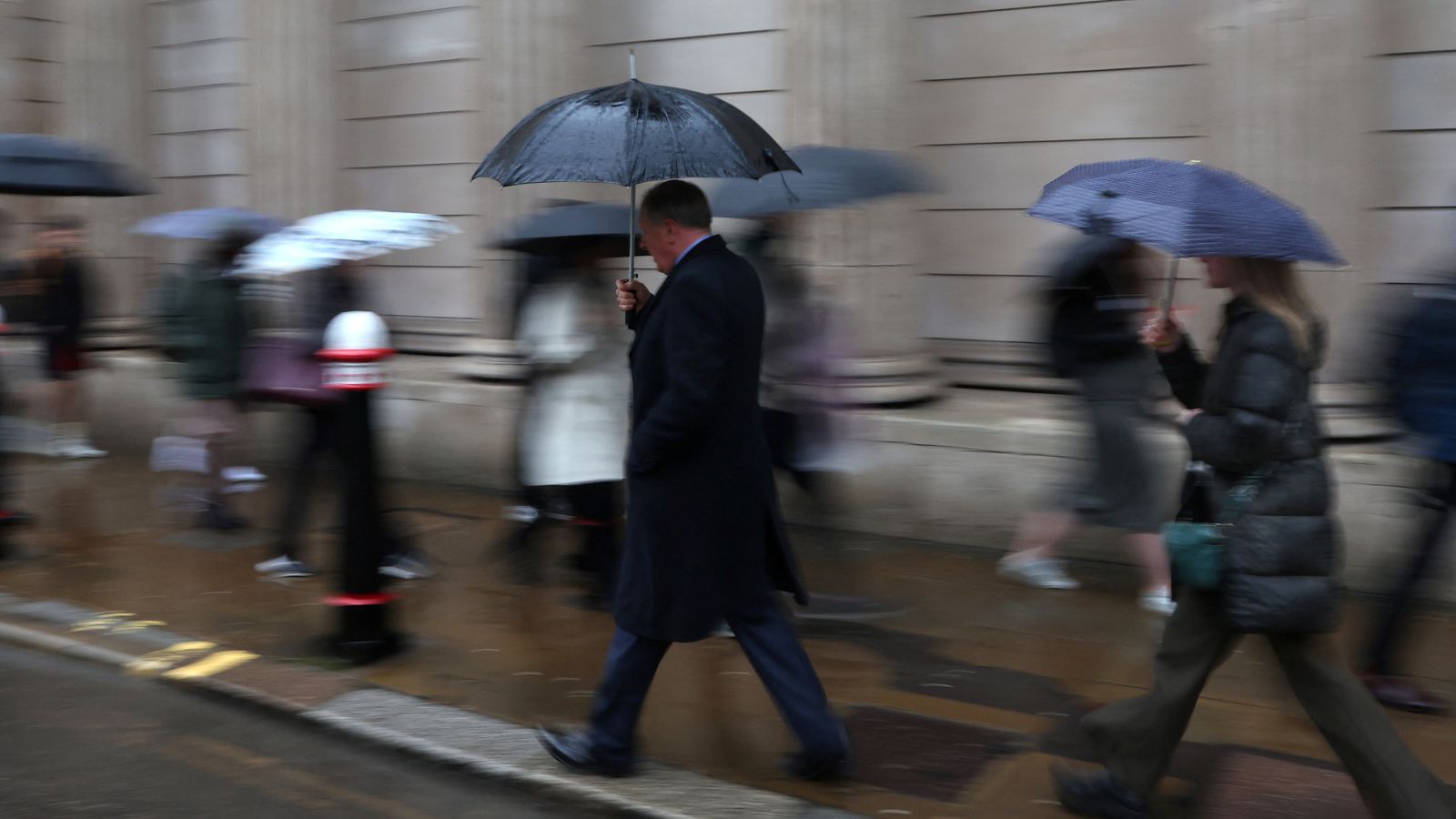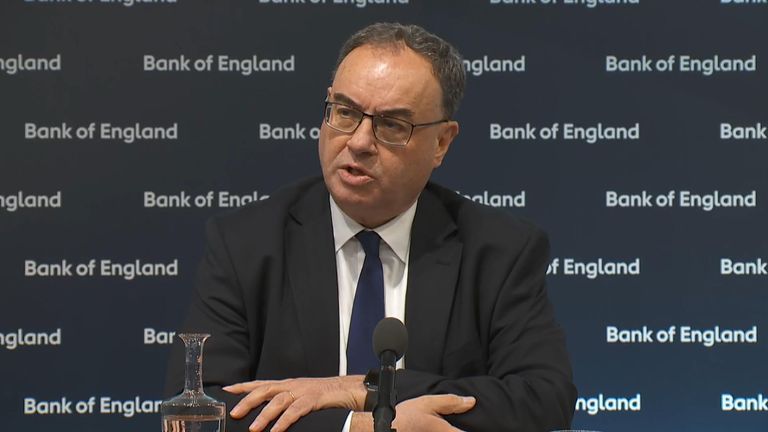Let’s get the provisos out of the way first.
The fact that the UK is technically in recession changes nothing fundamentally.
The economy had been performing weakly for some time. Gross domestic product – the broadest measure of how much income we are all generating across the country – had been essentially flatlining since early 2022.
Defining a recession
The definition of a recession is somewhat arbitrary anyway.
For some reason no one can quite remember, economists alighted on the notion that when the economy shrinks for two successive quarters, it constitutes a technical recession.
Imagine if we had learnt today that the economy had shrunk by 0.4% in the third quarter of last year and had flatlined in the final quarter. That would not be a “technical recession” – even though it would amount to more or less the same actual dent on economic activity as the numbers actually published by the Office for National Statistics today – of a 0.1% fall in Q3 of 2023 followed by a 0.3% fall in Q4.
Indeed, while this qualifies to be called the “R word” under that definition, this would be the shallowest recession since 1956 – provided growth returns in the first quarter of this year. And that’s assuming one of these quarterly falls isn’t revised away altogether.
Which brings us to the final proviso: these GDP figures are frequently revised – and often revised upwards.
Back in 2012 many people were fretting about the possibility of a double dip or even triple dip recession. In the event, the ONS eventually revised the numbers and there was no technical recession.
Money latest: What unexpectedly large contraction means
The political and economic difficulties
With all of that said, there is no escaping the difficulties of today’s news for the prime minister and chancellor, both politically and economically.
To take the political first, Rishi Sunak promised to grow the economy. He staked his reputation on it.
Now, while the economy did (just about) grow in 2023, it’s the most anaemic growth imaginable: 0.1%. Indeed, that’s the weakest year for growth since the 2009 crash (save for the COVID lockdown-related falls in 2020).
And in another sense, the economy didn’t grow at all.
When economists want to get a sense of how growth really feels across the economy, they don’t just look at GDP, but at GDP per head – the amount of economic output split by the total population. That adjusts for the growing population (very important in a country seeing record immigration flows) and gives you a better benchmark of economic progress, and on this front the news is undeniably grim.
According to ONS estimates, GDP per head shrank by 0.7% in 2023. Not only that, it has fallen every quarter since Q2 2022 – the longest unbroken streak of negative GDP per head since comparable records began in 1955.
What’s going on?
While the R word will undoubtedly dominate today’s reporting, this is arguably even more important. Which brings us to the deeper question: what’s really going on here? Why has the economy been flatlining (or, in GDP per head terms, shrinking) since Q2 2022?
There are plenty of discrete explanations. Some will point to Brexit, which has gummed up the wheels of trade. Others will pinpoint the Bank of England, which has been raising interest rates to painful levels, bearing down on household spending.
But there’s something else that’s been going on since 2022: the Russian invasion of Ukraine.
When that took place, it pushed gas prices to record levels across Europe. Energy costs went through the roof and since the UK (like most of its European neighbours) is a big energy importer and since energy prices are embedded in pretty much every product, from tomatoes to paper to computer chips, this country has taken a significant economic hit.
We are poorer than we were before – and that’s one of the main explanations for weak GDP.
None of this is to exculpate the prime minister and chancellor for the poor performance of the economy recently.
Not everything can be blamed on Vladimir Putin. But it’s worth noting that most other European nations (and for that matter other big energy importers like Japan) have faced similar pressures and seen similarly weak GDP figures.
Britain is certainly not alone.
All the same, in an election year, this is the news the prime minister will have dreaded above all else. Regardless of all the provisos, what people will remember about today is the simple fact that Britain has slipped into recession.
They will ask themselves whether they feel better off than they did last year or the year before and the answer – statistically – is no.


